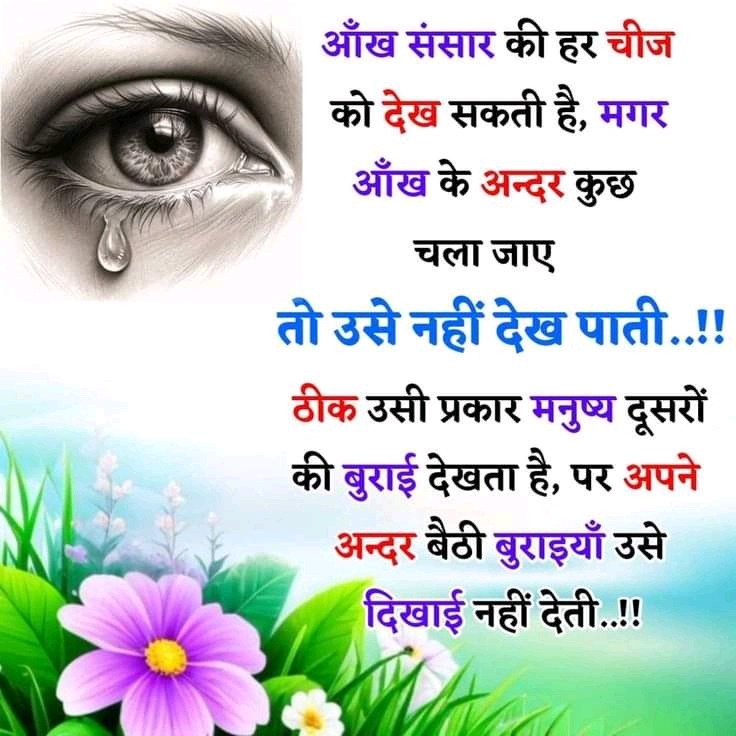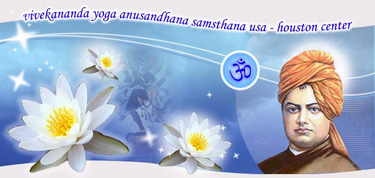Why We See Others’ Faults but Not Our Own: A Deep Life Lesson
Eyes can see the world but not themselves. Similarly, humans notice others’ faults easily but fail to see their own flaws. Discover this eye-opening life truth.


Why We See Others’ Faults but Not Our Own: A Deep Life Lesson :
Meta Title: Why We Notice Others’ Mistakes but Ignore Our Own – A Powerful Life Lesson
Meta Description: Eyes can see the world but not themselves. Similarly, humans notice others’ faults easily but fail to see their own flaws. Discover this eye-opening life truth.
Focus Keywords: see others’ faults, human nature lessons, importance of self-reflection, life truth about mistakes, why we ignore our flaws
Introduction
Our eyes are powerful—they can see everything around us, from the smallest detail to the largest landscape. But when even a tiny particle enters the eye, it becomes invisible. This simple truth mirrors human nature: we are quick to notice others’ flaws but blind to our own.
This blog explores this life lesson and shows why self-reflection is more valuable than criticism.
The Wisdom of the Eye
The eye sees everything outside, yet fails to see what is inside.
Similarly, people are quick to find mistakes in others but rarely notice their own shortcomings.
This natural tendency reminds us that true wisdom lies in looking inward before judging others.
Why Humans Notice Others’ Faults Easily
Ego: Pride blinds us to our own imperfections.
Comparison: Criticizing others makes us feel superior.
Lack of Awareness: Few people practice deep self-reflection.
Habit: Over time, finding faults in others becomes second nature.
The Importance of Self-Reflection
Instead of focusing only on others’ weaknesses, we should turn our vision inward. Self-reflection helps us:
Improve personal character.
Build stronger, healthier relationships.
Reduce negativity and judgment.
Live a peaceful and meaningful life.
A Simple Life Lesson
Before pointing out the mistakes of others, pause and ask yourself:
Am I free from flaws?
Do I practice what I preach?
How can I correct myself first?
Just like the eye must be cleared of what’s inside to see better, humans must cleanse their inner flaws to see life more clearly and kindly.
Conclusion
Eyes can see the world but not themselves. Humans can see others’ mistakes but not their own. This truth reminds us to focus on self-improvement instead of constantly criticizing others.
✨ “Correct the flaws within, and the world around you will start to look brighter.” ✨
Frequently Asked Questions (FAQ)
Q1. Why do humans notice others’ faults but ignore their own?
Because it is easier to criticize others than to self-reflect. Ego and comparison prevent us from recognizing our own flaws.
Q2. How can I become more aware of my own mistakes?
Practicing self-reflection, meditation, journaling, and seeking honest feedback from trusted people can help in identifying and correcting personal flaws.
Q3. Why is self-reflection important in life?
Self-reflection is key to growth. It improves character, strengthens relationships, and helps us live a more meaningful and peaceful life.
Q4. What happens if we only focus on others’ weaknesses?
This leads to negativity, weak relationships, and arrogance. It prevents us from improving ourselves and creates unnecessary conflicts.
Q5. What is the best way to balance seeing others’ faults and self-awareness?
Observe others’ mistakes not to criticize but to learn from them, while focusing on correcting your own flaws first. Humility is the key.
